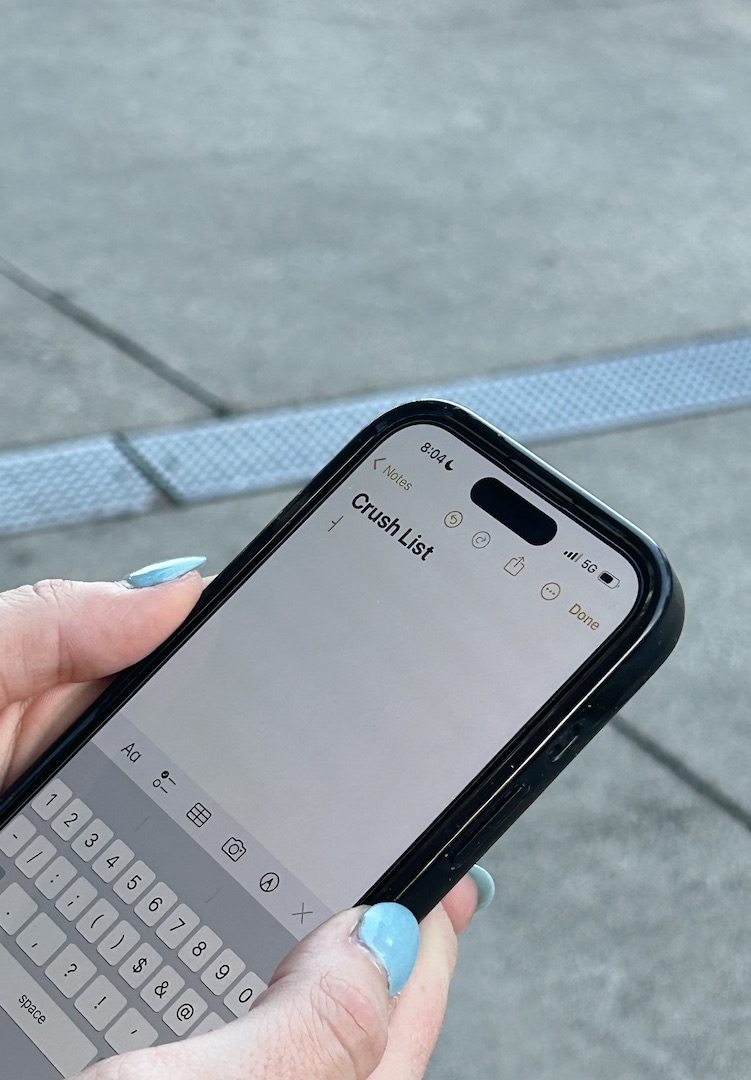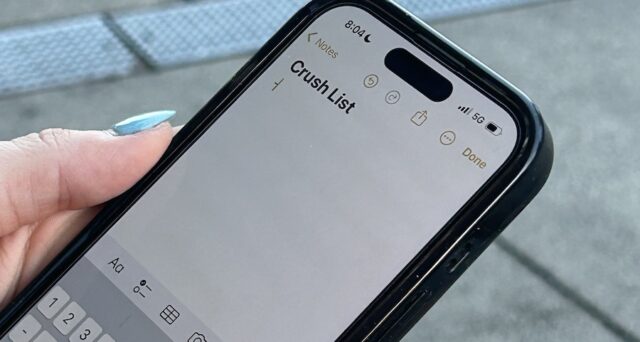
Most times when I’ve been in front of a large group of people, I have wanted to stand up and say, ‘My name is Jake Parker and I’m a date-a-holic’. But I have never said this. It’s too hard to admit and also, not very sexy.
Instead, I’ve found myself backstage, ready to walk onto a dating show in Melbourne in front of a live audience. I’ve found myself teetering behind a curtain wondering: how did this happen? Then comes my cue: “Welcome to the stage, contestant number three!”
Interested to hear how others navigate the world? Head to our Life section.
Human Love Quest is a familiar concept. It situates three contestants behind a screen that conceals a love-seeking bachelor or bachelorette. This person asks questions to decide which of the contestants to go on a date with. Its format mimics familiar American TV shows from the ’60s – the bright lights, the charismatic hosts, the uncomfortable frankness about dating woes.
How I’d ended up on this show was a journey of rationalisation. At first, it was a chance to see how I would describe myself within the privacy of a Google Form. Then it was the joke of ‘actually finding love’. Then it became a dedication to the ‘screw Hinge’ movement.
I liked this last point the most. I’d recently been on a disheartening bender of Hinge dates with Zionist sympathisers and mansplaining contrarians. In my mind, the app was to blame.
On dating apps, we feel like we’re actively keeping one eye on the prize: a romantic life. But the general consensus is that it’s exhausting, ineffective and definitely not (as its slogan suggests) ‘made to be deleted’.
Most of us only check the app intermittently. It’s like a fidget toy for the horny thumb. Sometimes, though, we say yes to a date and this date is welcomed with a glimmer of hope. Maybe love is actually not a complicated science? Surely there’s something to be gleaned from all the options, excitement, and trust in the algorithm?
But then it’s more common to feel hopeless, running out of things to say after an hour in. The question starts off as ‘Do you have any siblings?’ and becomes ‘Is this worth it?’
Can I be your number one?
I took my seat on the stage. With a crowd of nearly 200 in front of me, it was tricky to be cognisant of anything but my appearance. I was fixated on my cheek muscles and how crossed my crossed legs were. The feeling was (surprise, surprise) just like a first date. And that’s when I realised that I wasn’t vying for the bachelor’s attention. I was vying for the crowd’s.
On Hinge, we’re also trying to woo the crowd, and the machine knows this. It will even spotlight our most liked photos for us. This algorithm seems trustworthy enough because it’s diplomatic. After all, the machine says, it is the people who have voted for this photo.
But for a while now, I’ve been suspicious of Hinge’s tactics. Behind the paid rose wall are five or six avoidant queers who also make it known that they listen to Björk. My perfect type. Amongst these candidates is the promise of The One – the person who will make me come and make me laugh.
In our own way, we, the contestants, tried to seem both funny and flirty. But at a certain point, I was stressed that I was appearing too coy. So, when the bachelor asked my thoughts on whether secretly using Google Translate in the backseat of an Uber to decipher if his driver was talking about him, my response was, “Are you trying to sleep with your Uber driver?”
Not exactly a roar of laughter. But it was more about using language which was coquettish, cheeky. I felt myself move a step closer to winning the game.
After crunching the numbers
The bonus round began and the bachelor could ask any one of us an additional question. I was selected, which was only unfortunate because my nervous mouth had begun to make noise when I spoke. “The world is ending. What’s the last thing we do together?” he asked.
An intuitive knowledge kicked in for me here. I thought about the winning contestants from the American dating shows. They could harbour a laugh, but at some point, they had to show their vulnerability. They had to show how they could love, earnestly.
With TV shows on my mind, I thought of an example of gay men displaying sincere love. The Last of Us was a zombie series. This was interesting because the third episode featured minimal zombies and instead focused on a love story between two moustachioed daddies. Fenced off from an apocalyptic world, Bill and Frank found love in a cagey setting. They faced everyday relationship problems until one of them was struck by a life-threatening illness. Despite their conflicts, they chose to remain soulmates as they served themselves wine and each took a cyanide pill.
They decided to live, survive and die together at the dinner table. And so I responded: “We have dinner.”
A smitten sound came from the audience, like something pulled from a sitcom. Was it really that easy? Was it really just a matter of arranging tonal shifts? Is that what gave the appearance of someone who was loveable? I couldn’t deny that there was something formulaic about this entire experience. It was, in effect, another equation; another algorithm.
A little joke + a sexy wink + a dash of ‘I’m lonely’ = The One.
I had thought I was escaping Hinge’s colonisation of romance, but another variation of the machine was still at work here.
Everything is boring (and beautiful)
The problem with Hinge isn’t the technology, it’s the gamification. Our human brains are susceptible to the pretty lights and jangles of a slot machine. Human Love Quest uses a framework that literally inspired Hinge’s concept. It’s no more ‘human’ than its digital counterpart.
I’m thinking back to the last person I’d met at a party, unprompted by an app, who I then followed up with for a date. We met for a beer. We exchanged a few words about our mutual friends. We had a nice time talking about their toxic workplace and my broken relationship with my father. We had gelato on a bench and eventually, we ran out of conversation.
It was an ordinary encounter, unstimulated by the machine. A date unhindered by nothing but the very boring fact that we just weren’t going to fall in love.
And now it’s clear that we’re no better or worse off for using Hinge, in the same way that the invention of the telephone didn’t really improve or worsen our search for love. It’s always going to be exhausting, ineffective, and not at all made to be deleted – and there’s a relief in admitting that.
For more on dating in 2025, try this.
This article I deleted Hinge and ended up on a live dating show appeared first on Fashion Journal.
2025-05-08 11:33:00
#deleted #Hinge #ended #live #dating #show
Source link
















